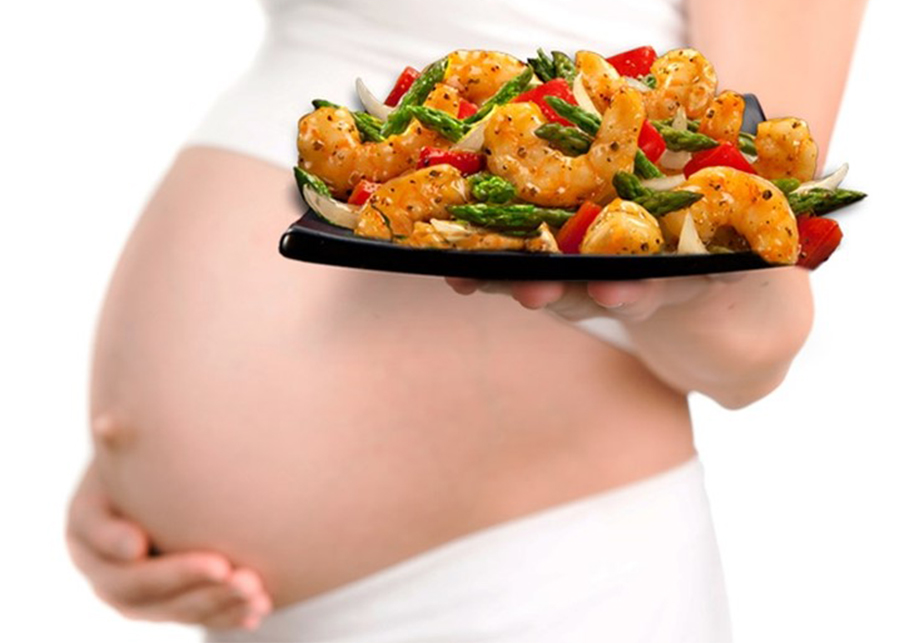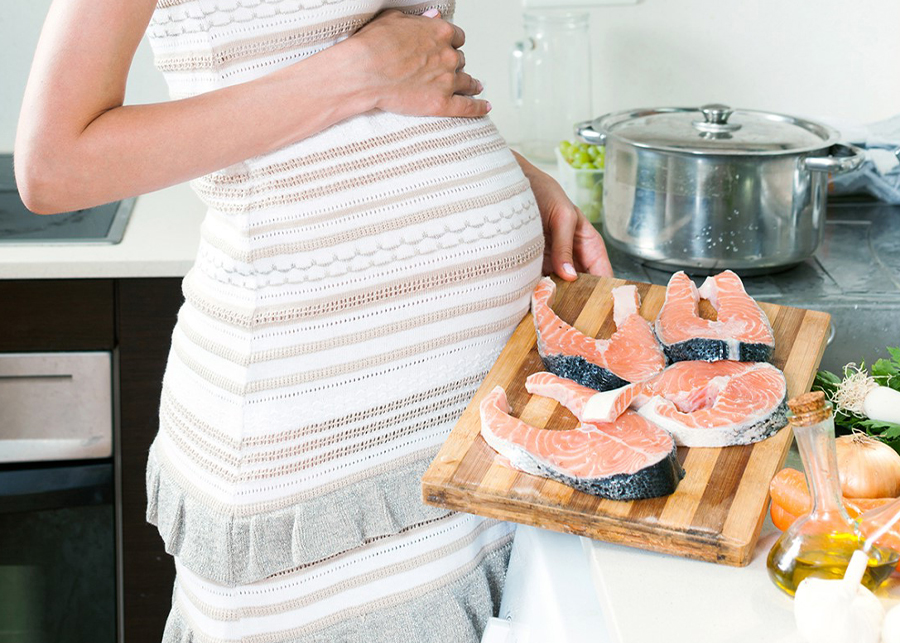Can pregnant women eat seafood? Which types of seafood are safe for pregnant women to eat? Should I remove the fish from my diet during pregnancy if I am concerned about mercury levels?
Seafood is a good source of protein and omega-3 fatty acids, and it is also an excellent source of magnesium and iron. However, not all types of seafood are safe for pregnant women. You should read the label carefully to make sure you are consuming safe seafood for pregnancy. In addition, you should also be aware of the mercury levels in seafood.

Fish is a good source of protein and omega-3 fatty acids
According to the Dietary Guidelines for Americans, pregnant women should eat at least two servings of fish per week. These servings can be made up of wild salmon, sardines, herring, and farmed oysters. These types of fish are low in mercury and high in omega-3 fatty acids. However, you must be careful about the type of fish you choose for pregnancy. Check the Environmental Defense Fund Seafood Selector to make sure the fish is free of contaminants that are harmful to your baby.
However, some types of fish contain high levels of mercury and other environmental pollutants. It’s important for pregnant women to choose low mercury varieties and choose safe cooking and storage methods for fish. By following these precautions, you can enjoy eating fish without the worry of mercury or other contaminants. You can also get more information about what to look for when choosing fish for pregnancy from experts and parents.
It contains mercury
Mercury can have adverse effects on the development of a fetus, but pregnant women should be aware of this risk. It is most harmful in the third and fourth months of pregnancy. Effects on the fetus may not be apparent until later in childhood when developmental milestones are delayed, such as language and memory. Several studies have been conducted to examine the effects of mercury on children’s brain development.
Although fish is often a necessary part of a pregnant woman’s diet, it’s important to understand the risks associated with mercury exposure. While many types of fish have relatively low levels of mercury, some contain high amounts of methylmercury, which can harm an unborn baby’s developing nervous system. For this reason, the FDA recommends pregnant women eat only fish that is lower in mercury.
It is a good source of iron
Although consuming seafood is not the best source of iron for pregnant women, it can help prevent iron deficiency. A typical serving of chinook salmon contains 0.2 milligrams of iron. You can also obtain iron from other foods that contain plant – based protein, such as chickpeas. One cup of chickpeas provides 3.7 milligrams of iron.
Pregnant women who have low iron levels should consider taking iron supplements, which are safe. They can take up to 30 milligrams daily. In addition, they should take a prenatal vitamin that contains iron. If you feel that you are lacking in iron during
pregnancy, you should discuss this with your doctor.
It is a good source of magnesium
During pregnancy, adequate magnesium intake is essential to fetal development. However, due to increased demand and increased renal excretion, serum magnesium levels decrease. In a longitudinal study of 108 pregnant women, those who consumed a plant-based diet had significantly higher magnesium levels than the control group. This might suggest that pregnant women should increase their intake of plant-based foods.

Magnesium is found naturally in many types of food. Several plant foods, including whole grains and fish, contain the mineral. But people who don’t get enough magnesium from these foods may need to take magnesium supplements. Fortunately, there are many over-the -counter and prescription magnesium supplements, including a liquid form. Some research has shown that liquid supplements are better absorbed than solid magnesium supplements.
It is a good source of potassium
Seafood is one of the best sources of potassium, and clams are especially high in the mineral. Just 20 small clams contain over 1200 milligrams of potassium, or about one-fourth of your daily requirement. Other good sources of potassium include octopus, king crab, and crayfish.
Seafood also contains potassium, as does whole fruits and vegetables. A half cup of bamboo shoots provides 400 milligrams of potassium, while a cup of water chestnuts has around 360 mg. Fufu, a West African dish made from pounded starches, is also high in potassium. One cup of fufu contains over 1,000 milligrams of potassium. And beet greens are a great source of potassium, too.
Can Pregnant Women Eat Seafood? Result
Seafood is an excellent source of protein, omega-3 fatty acids, and iron. However, mercury levels can be quite high in certain types of seafood, including tuna and swordfish. In addition, you should always consult your doctor before eating any type of seafood while pregnant; this will allow you to feel confident that you are consuming a safe amount of seafood for pregnancy.








